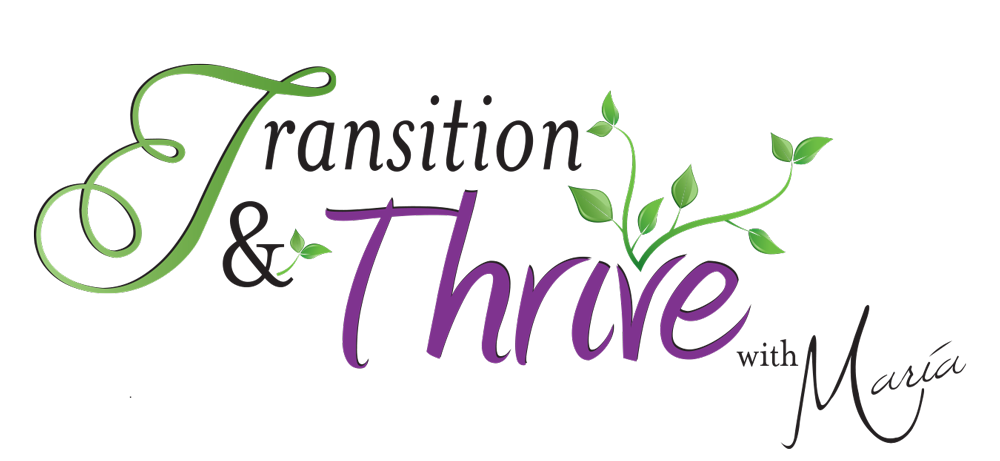Healing from loss is one of the hardest things in life because it is jam-packed with emotions that come and go. Living beyond loss and grief challenges even the most resilient among us.
What I know for sure is the losses you endure, and the grief that comes with them, are deeply personal and the way you process and manage through it is equally personal. You will travel your own path and land where you land. It’s a unique journey.
There are all kinds of losses you can experience. Some of them are major life events that can change you profoundly. While others, which some may think are less significant, cause you to grieve, nonetheless.
Losses Come in Many Flavors
Whether you have lost a close family member or your spouse, or you have lost a beloved pet, grief follows. You may grieve over the loss of your marriage or the loss of your job. Moving and leaving a home you love may bring up sadness and fear—both symptoms of grief.
It might be loss of health, your own or a loved one’s, retiring from a long career, or the season of friendship ends.
Regardless of the loss, it’s normal to grieve. The emotions will come and, have no doubt, they will ebb and flow like a tidal wave, at first. As you move through the grief process, the waves will come more gently before they ebb again.
The Emotions of Loss and Grief
Some losses are expected. For instance, when your friend or family member succumbs to a long-term illness or your children leave home for college. And others are unexpected, such as an accident, a heart attack or a sudden layoff from your job.
The disbelief and shock that can come with either can be hard to accept, leaving you numb and confused. What typically follows is the deep sadness, emptiness or loneliness. This is what I describe as “the hole in my heart.”
Regret and guilt may be among the emotions you feel. There may be things you wish you could have said or done. When my middle brother passed away suddenly from complications of pneumonia, I spent weeks wishing I could have told him one more time how much I loved him and say goodbye.
Have you ever felt angry at the loss of something or someone? You might be angry with yourself or with God, wishing the doctors could have done more, or blaming the company for eliminating your job.
In many cases, there is fear and worry. You may feel helpless, anxious, as though your security is now gone. The loss of your loved one may leave you wondering what your life with be like without them. While the loss of your job may cause panic and confusion.
The emotions are real, and they are to be expected. They are normal when it comes to loss and grief.
How Long Does It Last?
The truth is, your guess is as good as mine as to how long grief lasts. In my experience, it depends on the extent of the loss and the significance of the relationship with what you lose.
The loss of my mother took a long time for me because we were so close. The pain from the loss of two of my three brothers, within months of each other, still feels very real and raw after over a year. I got over the loss of my 20-year career with one company much more quickly.
Some people move on more quickly than others. There is no right or wrong. There is no prescribed length of time for grief. It just depends on so many factors.
The Stages of Loss and Grief
Since this journey to living beyond loss and grief is so personal, it also depends on how you choose to move through it.
Elisabeth Kübler-Ross’s work that describes the five stages of grief, was intended to help us understand that grief is a process, but it is not a linear one.
When she first introduced this flow: From loss to Denial to Anger to Depression to Bargaining to Acceptance, many thought their experience with grief should fit neatly into these buckets of emotion and behavior. They don’t. You may never feel denial or anger. Or you may experience them in a different order. Her intention, I believe, was to help us by providing a framework for understanding what you might go through.
The Physical Symptoms of Grief
As if the emotional trauma was not enough to deal with, you may also feel chronically tired, cranky and moody. Decisions may become hard to make.
You may be unable to eat because you feel nauseous. Or, you may use eating as a way to cope.
For me, the most common thing was being unable to sleep well. I couldn’t turn off my thoughts and worries.
I’ve come to learn this: sleep is one of the most important things to get right.
9 Coping Strategies for Living Beyond Loss and Grief
Figuring out what works to help you cope with loss and grief may take some trial and error. Here are nine strategies to test that may help:
-
-
-
- Allow yourself to mourn the loss—whatever it is. This will take some time, so give yourself room and find space to feel a deep sadness, as well as the other emotions, as they ebb and flow.
- Acknowledge the emotions that come up. Moving through them is part of your healing process.
- Accept that this is your own journey through loss and grief, and it may be different than what other people experience. Don’t let others tell you when it’s time to stop grieving—this is your own road to healing.
- Sleep. Do your best to keep to your normal routine of sleeping. At first, you may need some assistance. For instance, try reading till you fall asleep, listening to a guided meditation to relax, or playing nature sounds while you are getting ready for bed. Natural sleep aids may be required. As a last resort, a sleeping pill. Sleep is necessary for coping with a significant loss.
- Eat well. Avoid unhealthy foods because they may not support your energy levels the way you’ll need when you’re struggling with loss and grief. A good diet, above all, will keep you healthy and you’ll need all the natural energy you can muster at a time like this.
- Make self-care a priority. Finding time to do the things that help you relax, stay centered and grounded are essential to building resiliency and thinking clearly.
- Be with others you love and trust. Share stories, laugh and get the companionship you need. Doing this grieving stuff alone is a recipe for prolonging it.
- Journal. One of my favorite coping strategies is to write about what I’m feeling as I go through loss and grief. It helps me keep memories alive and to remember the good times, and the not so good, so I can process how I feel about each. If writing isn’t your thing, you might record your voice talking about that which you lost or make a video. Share any of those with others who may also be grieving—or don’t. It’s up to you.
- Get support, especially if you feel as though you’re not moving through the process of loss and grief. If you’re feeling stuck in the early stages and can’t seem to get out of your own way, it may be time to talk with someone who has been where you are and can help you see the light at the end of the dark tunnel.
Living beyond loss and grief is a choice we all get to make. Change happens. Loss happens. It’s one of the Laws of Life.
This profoundly personal journey is yours to create, but you don’t ever have to do it alone.
Take the First Step
If you are facing adversity and living with uncertainty about how to move beyond it, you may wonder if it’s even possible. Making choices that move you forward can be hard, and getting some guidance may be just what you need. Start by exploring how change can impact you? And learn how to move through it with more dignity and grace by reading my free ebook, then let’s have a chat. Click here to take the first step: From Darkness to Light: Learning to Adapt to Change and Move Through Transition.
- Allow yourself to mourn the loss—whatever it is. This will take some time, so give yourself room and find space to feel a deep sadness, as well as the other emotions, as they ebb and flow.
-
-


My favorite ex-husband, Don, lost his wife in an accident where the woodpile they created for winter fell on top of her. When it happened he was unable to dig her out and living in the country, it took a while to get help. As I imagine the scenario, it is likely major guilt, not just grief and sadness are in his soul. I want to comfort him, but don’t know what to say. No words seem adequate! He e-mailed me about this 3 months ago. I e-mailed back and asked if he wanted to talk. I’ve heard nothing from him since. It seems so trite and stupid to say, “So, how are you doing?” Maria, what can I say?
Hello, Carol … I’m so sorry to hear of this tragedy. I can imagine you are struggling with what to say. It’s tough when he won’t email you in response to the invitation to talk. Perhaps he’s not yet able to talk about it, especially over the phone. When loved ones and friends are a distance from me and I can’t visit in person and just sit with them, I often will send them emails or cards with inspirational messages to let them know I’m thinking of them and that I’m here when they are ready to talk. Sometimes I get a response and sometimes I don’t. It’s all I can do from a distance. Reaching out may be important to you. Letting him know that he’s in your thoughts and prayers may be important to him. I hope this helps. ~Maria <3